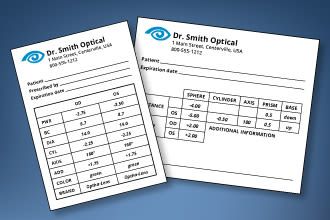how to fix blurry vision
18 Reasons Why You Might Have Blurry Vision
What is blurry vision?
Blurry vision is the loss of sharpness of eyesight, making objects appear out of focus and hazy. Blurred vision can affect both eyes, but some people experience blurry vision in one eye only.
The primary causes of blurred vision are refractive errors — nearsightedness, farsightedness and astigmatism — or presbyopia. But blurry vision also can be a symptom of more serious problems, including a potentially sight-threatening eye disease or neurological disorder.
Cloudy vision, where objects are obscured and appear "milky," is very similar to blurry vision. Cloudy vision usually is a symptom of specific conditions such as cataracts.
Blurry vision and cloudy vision both can be symptoms of a serious eye problem, especially if they occur suddenly.
NEED AN EYE EXAM? Find an eye doctor near you and schedule an appointment.
What causes blurry vision and how to treat it
-
Myopia: Symptoms of myopia (nearsightedness) include squinting, eye strain, headaches and blurry vision in one or both eyes. Myopia is the most common refractive error and causes objects in the distance to appear blurred. Eyeglasses, contact lenses and refractive surgery such as LASIK and PRK are the most common ways to correct nearsightedness.
-
Hyperopia: If you have hyperopia (farsightedness), distant objects may remain clear but your eyes can't focus properly on close-up objects — or doing so causes unusual eye strain and fatigue. In cases of severe farsightedness, even distant objects may appear blurred. Like myopia, hyperopia can be corrected with eyeglasses, contact lenses or refractive eye surgery.
-
Astigmatism: Blurred vision at all distances often is a symptom of astigmatism. A type of refractive error, astigmatism usually is caused by an irregularly shaped cornea. With astigmatism, light rays fail to come to a single focus point on the retina to produce clear vision, regardless of how far away the viewed object is from your eyes. Astigmatism, like nearsightedness and farsightedness, can be corrected with eyeglasses, contact lenses or refractive surgery.
-
Presbyopia: If you're over age 40 and are starting to notice blurry vision up close — when reading a text message, a restaurant menu, food label or other small print, for example — chances are this is due to the onset of presbyopia, a normal age-related vision problem. While the symptoms of presbyopia are the same as those caused by hyperopia (blurry near vision; eye strain when reading), presbyopia is an age-related loss of ability to focus on near objects due to hardening of the lens inside the eye. Common treatments for presbyopia include progressive lenses, bifocals and reading glasses. There also are presbyopia surgery options — including corneal inlays, monovision LASIK and conductive keratoplasty.
For all eyeglasses to correct refractive errors and presbyopia, clarity and comfort can be enhanced with anti-reflective coating and photochromic lenses. Ask your optician for details.
At top is a clear view of a Jack Russell terrier, while the blurry photo in the middle shows how the dog might appear to a very nearsighted person. At bottom, the view is both blurred and clouded, as it might appear to someone with cataracts.
A Jack Russell terrier, viewed by someone who has blurry vision
Jack Russell as viewed by someone with blurred, cloudy vision and poor contrast sensitivity, due to cataracts
-
Chronic dry eyes: Dry eye syndrome can affect your eyes in numerous ways, including causing variable blurry vision. While artificial tears (lubricating eye drops) can help, more advanced cases of dry eye may require a prescription medication or punctal plugs to keep your eyes comfortable, healthy and seeing well.
-
Pregnancy: Blurry vision is common during pregnancy and sometimes is accompanied by double vision (diplopia). Hormonal changes can alter the shape and thickness of your cornea, causing your vision to blur. Dry eyes also are common in pregnant women and can cause blurred vision. You should always report any vision disturbances during pregnancy to your doctor. While blurry vision is not always serious, in some cases it could be an indicator of gestational diabetes or high blood pressure.
-
Ocular migraines or migraine headaches: While generally harmless and temporary, blurred vision, flickering light, halos or zigzag patterns are all common symptoms prior to the start of an ocular migraine or migraine headache.
-
Eye floaters: Vision can be blurred by temporary spots or floaters drifting in your field of vision. Floaters typically appear when the eye's gel-like vitreous begins to liquify with age, causing microscopic bits of tissue within the vitreous to float freely inside the eye, casting shadows on the retina. If you see a sudden shower of floaters, this could signal a torn or detached retina and you should see an eye doctor immediately.
-
Blurry vision after LASIK: Your vision may be blurry or hazy immediately after LASIK or any other type of refractive surgery. The clarity of your eyesight typically will improve within a few days, but it may take more time for your vision to stabilize completely.
-
Eye drops and medication: Certain eye drops, especially eye drops containing preservative, can cause irritation and blurry vision. Also, some medications such as allergy pills can cause side effects of dry eyes and blurred vision. During a comprehensive eye exam, your optometrist or ophthalmologist can advise you whether any of your medications might cause blurry vision.
-
Over-wearing contact lenses: Wearing disposable contact lenses (or indeed any type of contacts) for longer than your doctor prescribed will cause proteins and other debris in your tear film to build up on the lenses. This can cause blurry vision and increase your risk of eye infections.
Blurry vision can be a symptom of serious eye problems
-
Eye conditions and diseases: If you have sudden blurry vision in one eye and are over age 60, it's possible you have developed a macular hole in the central zone of your retina.
-
Cataracts: Vision changes such as blurred vision or cloudy vision, as well as glare and halos around lights at night may be symptoms of cataracts. lf left untreated, cataracts can eventually worsen and obstruct vision to the point of blindness. But by replacing cataracts with artificial lenses, cataract surgery is very successful in restoring lost vision.
SEE RELATED: Can cataracts cause blindness?
Try these interactive Rx forms to learn what the measurements mean on your eyeglass prescription or contact lens prescription.
-
Glaucoma: Blurry vision or "tunnel vision" may be symptoms of glaucoma. Without treatment, vision loss will continue, and permanent blindness may result.
-
Age-related macular degeneration: Blurry vision and visual distortions causing straight lines to appear wavy or broken could be symptoms of age-related macular degeneration (AMD), a leading cause of blindness among older people.
-
Diabetic retinopathy: If you have diabetes, unexplained blurred vision may be due to the onset of diabetic retinopathy, a sight-threatening disease that damages the retina of the eye.
-
Cardiovascular disease and other systemic diseases: Blurred vision, often in conjunction with double vision, can be a symptom of an underlying health emergency such as a stroke or brain hemorrhage. It also can be an early sign of multiple sclerosis. If you have sudden blurry vision or double vision, see an eye doctor immediately.
-
Tiredness or eye strain: If you have mild blurry vision that comes and goes, this could mean simply tiredness, eye strain, or over-exposure to sunlight.
However, sudden or continuing changes in vision such as blurriness, double vision, tunnel vision, blind spots, halos or dimness of vision could be signs of a serious eye disease or other health problem.
If you have sudden changes to your vision, you should always see an eye doctor immediately.
Page published in March 2019
Page updated in October 2021
how to fix blurry vision
Source: https://www.allaboutvision.com/conditions/blurry-vision.htm
Posted by: weaveracrod1984.blogspot.com

0 Response to "how to fix blurry vision"
Post a Comment